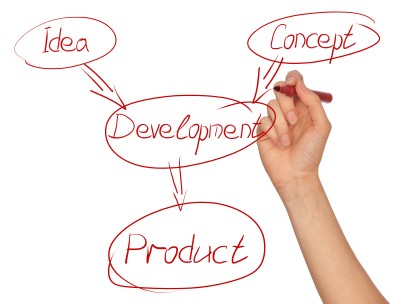How product managers change the meaning of the term "CIO"

Product managers (MPs) are often called the “CEO of a product (CEO)” in the sense that they manage the entire development chain and product launch. However, the influence of MP is greatly exaggerated - they do not have to work with shareholders and often they do not directly manage finances and income and expense reports.
MPs are responsible for communicating user needs to developers, a good sense of the product, and helping the team and company deliver the right product. To succeed in these matters, I like to call the MP not the CEO (Chief Executive Officer, Chief Executive Officer) but CIO (Chief Influence Officer, Chief Influence Director).
')
When I was working on my first product, no one sent me reports. I was the owner of the product with minimal support from the side. The task was pressing on me a bit - I had to turn an idea into a product, while working in a group of specialists in various fields. The team consisted of a huge number of different stakeholders - backend developers, big data specialists, computer scientists, interface designers, branding managers, lawyers, marketers, and a bunch of other groups that had to be consulted.
When you work with such a large number of teams and do not have direct legitimate authority, it is most important for you to be able to influence and persuade people. It is quite difficult, in the sense that it is not just some unusual skill that can be learned. If you are sociable - this is good, but not enough. In order to inspire enthusiasm and inspire people, you need to be able to influence and have charisma.
The position of the CEO suggests that you are the leader, and everyone should obey you. In fact, the team will not work with you if they are not motivated enough to work on the desired product. Everyone has their own area of responsibility. And the position of CIO assumes that you are part of the team, and your role is to unite its efforts and make the team feel that all its members are working together on the product.
Here are a few tricks that I used on my own experience to influence the team in the absence of a formal structure of subordination.
1. Explain why it is profitable for them.
It is quite difficult to ask someone to do any work for you. No one likes being offered a job. Everyone has so much to do. But what if you can explain why a person needs to get involved in the work? Try to convince him that he will look better in the eyes of the company, or it will help him improve his skills - in general, you need to find some value in this job for him.
2. Provide well-deserved recognition.
Good MPs do not arrogate to themselves the whole success of the product. They make sure that everyone in the team gets a well-deserved recognition of their achievements. I love to pay attention to those people who have surpassed themselves on the way to creating a product. It builds good relationships, and inspires others to accomplish.
3. Understand your product well.
Trust and reliability are the basis for strengthening relationships in a team. You should easily be able to convey the value of the product and describe it in the smallest detail. If at a meeting you do not understand the product or cannot clearly explain how the product or one of its capabilities will work, you will immediately lose confidence. If you are not interested in the product, why should others be interested in it? Know all its features and capabilities, the value of each of them and its impact on the overall value of the product.
The best MPs are able to select the right people to make decisions, reach agreement in debates, and ensure seamless communication and teamwork between different teams. Influencing, without having a formal power - this skill needs to be improved over time, often by trial and error. I believe that those MPs who successfully master it will be able to create excellent products with the support of their teams.
Source: https://habr.com/ru/post/292696/
All Articles